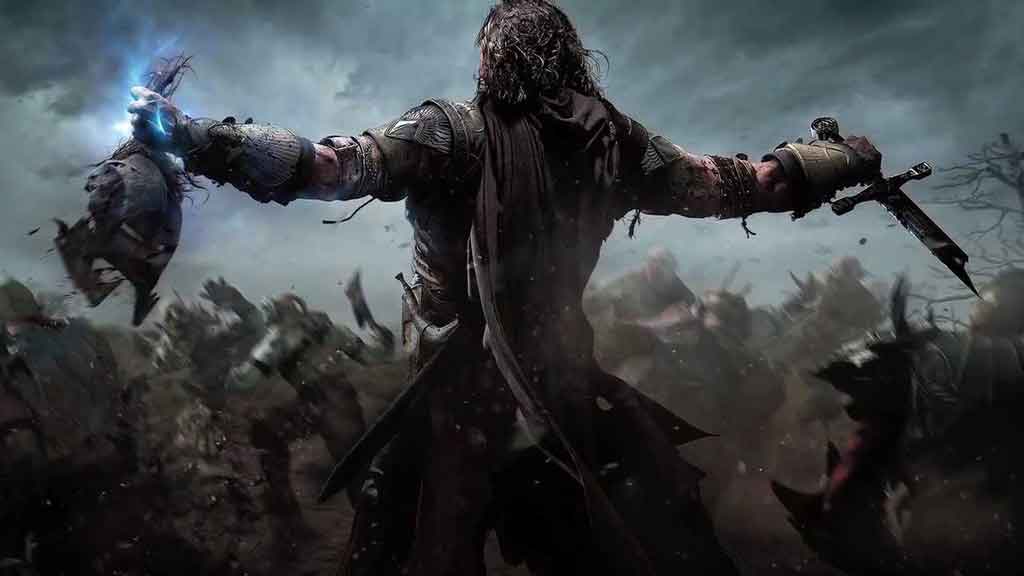By Jeremy Hannaford (Contributor) – Email
Print Edition: October 15, 2014

While the Tolkien universe has always stayed in the realm of PG-13, there has always been the idea of a more mature and darker tale to tell. Snowblind’s War in the North attempted to tackle this, but the game suffered from a bland combat system and an all-around forgettable experience. Now developer Monolith has stepped up to the plate and delivered that intended experience — and so much more.
What Shadow of Mordor truly excels in is creating a next-gen sandbox experience. The core gameplay revolves around the “Nemesis system,” which is a hierarchy of Uruk captains and warchiefs. It constantly changes depending on the actions you take against it, as well as actions carried out from within. The Nemesis system is so crucially ingrained into the enemy combatants that any Orc can have a name and a story. While you can personally affect the hierarchy via assassinating or branding Uruk captains, the Uruks themselves can affect the system with revolts and rising in the ranks.
Another exceptional feature of Shadow of Mordor is its “one more thing” mentality. Much like XCOM: Enemy Unknown or Skyrim, Shadow of Mordor can make hours feel like seconds. The hierarchy is constantly changing, which always results in something new to do. With 25 Uruk captains and warchiefs to contend with, there is always something to do to disrupt or control the hierarchy.
This is especially true when you are killed by an Uruk. As you watch him rise up, it creates a feeling of revenge that you will want to exact immediately — but this is what the game wants you to do. Players need to be methodical with their attacks. While the game offers Assassin’s Creed and Batman Arkham combat aesthetics, it removes almost all their issues, and without a counter-kill function, combat can be very challenging and sometimes suicidal. This opens up more aspects of the game, as every encounter can be different depending on how the player plans out the attack.
The ironic thing about Shadow of Mordor is that although it has a story, the game encourages you to forgo that narrative. The addictive aspects of the Nemesis system have little to do with how the narrative functions.
This is essential, in fact, as the story in Shadow of Mordor is oddly light in comparison to its gameplay mechanics. If one were to simply focus on the story, the game could be completed in a little under six hours. Considering the game had over five writers, including Red Dead Redemption writer Christian Cantamessa, the narrative is fairly weak. Instead of fleshed-out plot lines, players are given something resembling Cliffnotes in a much larger project. While this certainly doesn’t take anything away gameplay-wise, it will certainly leave players saying, “That’s it?”
Shadow of Mordor offers what gamers truly deserve from a sandbox experience. Monolith has delivered the first true next-generation experience of the year. Its addictive gameplay will turn hours into minutes as you hunt down every single Uruk and level the plains of Mordor.


